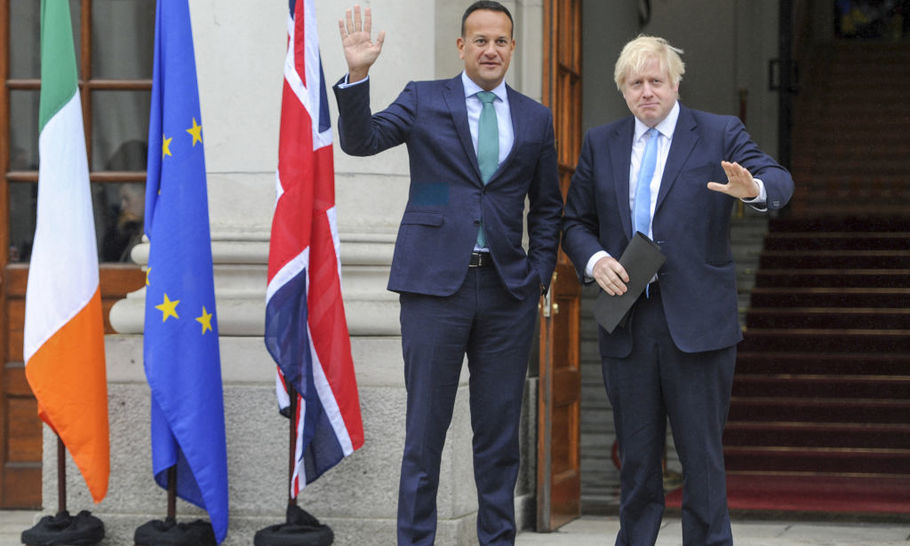How long an extension will we get? Britain supposes; Brussels imposes

Photographer: Aidan Crawley/Bloomberg via Getty Images
For those of us who love Europe, this may prove to be a defining moment. Boris Johnson is bogged down in trench warfare after the Commons, with its usual perversity, passed his Bill but turned down his timetable. Instead of the fast track for which he had hoped, the Prime Minister is now stuck in the slow lane. Not for the first time in the saga of Brexit, the initiative has returned to Brussels.
The choice that now faces Donald Tusk and the 27 heads of government is not an easy one. Do they grant a long extension to the British, potentially dragging out the drama into next year, with all the soul-destroying angst and uncertainty that comes with it? Or do they keep any delay to the minimum required for the passage of legislation?
On how the EU resolves this question, a great deal may depend. If the Council of Ministers opts for a long extension of several months, the Prime Minister has already delivered a warning: up with this he will not put. Rather than subject the country to death by a thousand amendments, he will, he says, pull the Bill and call an election.
Unfortunately for him, the law leaves Boris Johnson little room for manoeuvre. Outfoxed by the Fixed-term Parliament Act, he cannot force an early election except on the say-so of the very Opposition parties he hopes to trounce at the ballot box. They are unlikely to give him the chance until Brexit is done and they can fight on what they see as more favourable ground. Jeremy Corbyn has already indicated that he will accuse the Tories of plotting to auction the NHS to Donald Trump and poison kids with chlorinated chicken.
Then there is the Benn Act. Most laws are intended to apply equally to everybody; not this one. As we saw last weekend, part of this most peculiar law applies to just one person: Boris Johnson. He has already complied with the letter-writing part of it, however reluctantly. The other part of this “Surrender Act”, however, applies to the whole country: the UK is obliged to accept whatever extension the EU deigns to offer. In his medieval bestseller The Imitation of Christ, Thomas à Kempis famously wrote: “Man proposes; God disposes.” Not now. It’s more a case of the divine right of Councils of Ministers. Britain supposes; Brussels imposes.
So Boris Johnson will have to work with the extension he is given. Last night he hinted that if, as he hopes, the EU grants only a short “technical” extension, he will merely “pause” the legislation to allow for more scrutiny. But wrecking amendments would, in the Government’s view, put the ratification process in jeopardy. Any attempt to attach a second referendum or a customs union to the Bill would force an election — or Brexit without a deal.
So the political future of the British people may hang on a decision to be made by 27 leaders who cannot wait to be rid of us. If they get it wrong, what will that do to our attitudes to our Continental neighbours? Will the offshore islanders, whose love of Europe has so far survived all the vicissitudes of Brexit, finally succumb to insularity or (Heaven forbid) even xenophobia?
To be fair to the EU, they did not ask to be placed in this awkward situation. It is we, the British, who have handed them this poisoned chalice. It is for us to play the hand they deal us. As it has always been, so it is today: the British will make their own history and forge their own destiny. It was our choice, nearly half a century ago, to join in the European project. It is our choice to jump ship now.
Boris Johnson must make the best of a bad job. If, as seems most likely, the EU grants a flexible delay, which could last until 31 January, but be terminated at any time between now and then, the Government could still hope to get its Bill through both Houses within weeks of the deadline of 31 October that was, after all, originally imposed by the EU.
The election that would surely follow will pitch those who feel that Brexit is better late than never, against those who would rather have a permanent extension, by whatever means. What that election will decide is not who loves Europe the most, but how we may best avoid finding ourselves in our present passive-aggressive predicament ever again.





